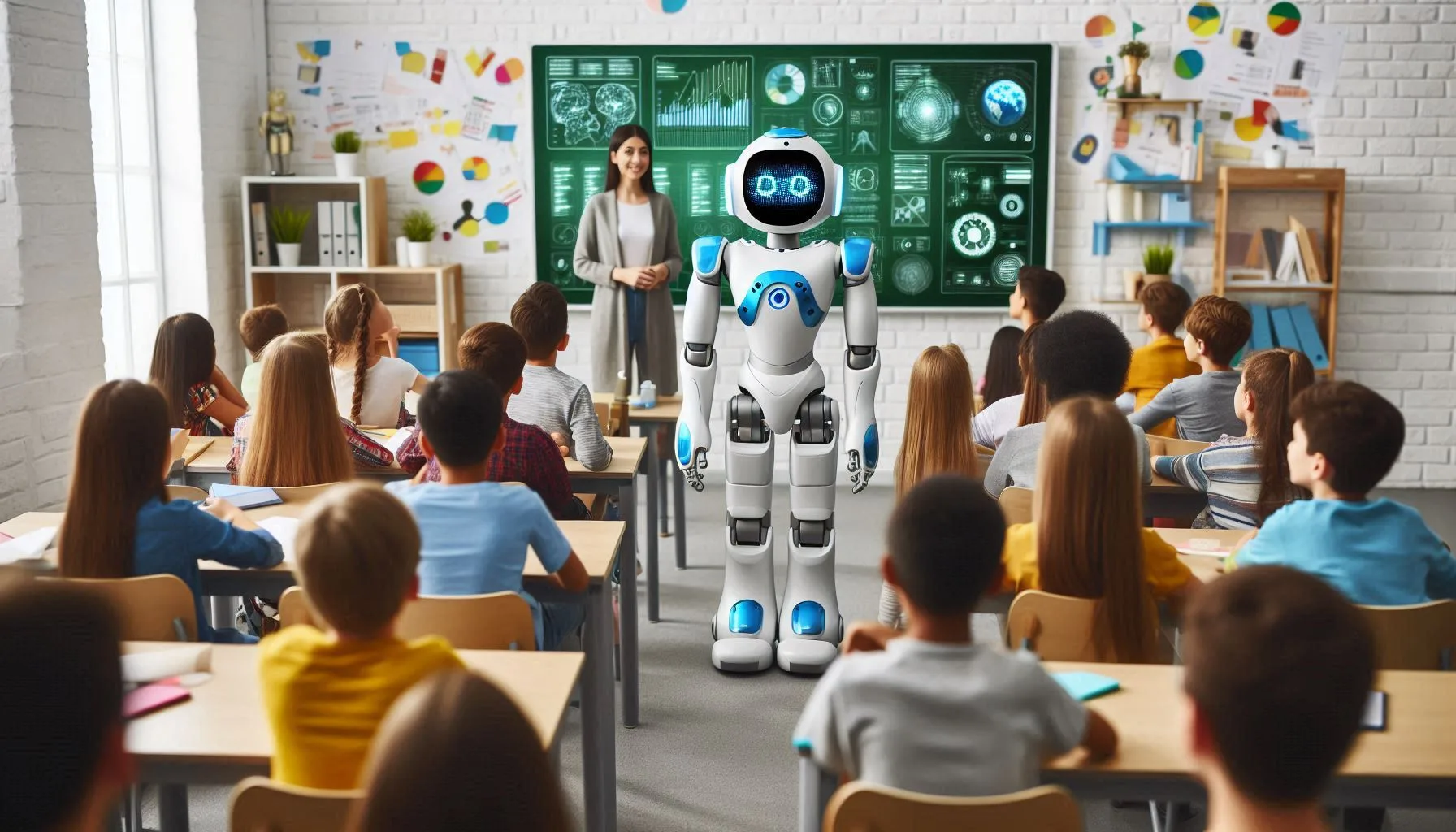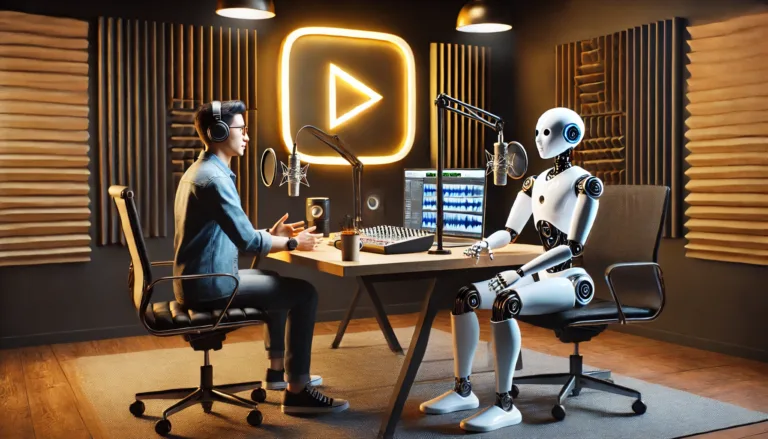Artificial Intelligence (AI) is already reshaping many aspects of our lives, from healthcare to transportation, and its role in education is becoming increasingly significant. While AI is not yet a standard feature in classrooms worldwide, it is poised to become an essential part of the education system in the near future. In this post, we’ll explore how AI could revolutionize the way schools function, how teachers interact with students, and how students learn.
Personalized Learning: The Core Benefit of AI in Education
One of the primary ways AI will influence education is through personalized learning. Every student learns at a different pace and in different ways. Traditional classroom settings often struggle to accommodate these differences, as teachers face the challenge of teaching a large group with varied needs. AI can bridge this gap by tailoring educational content and strategies to individual students.
AI-powered platforms can assess a student’s strengths and weaknesses in real time, providing instant feedback and adjusting lessons accordingly. This dynamic learning environment ensures that students who need more time on certain subjects receive additional support, while those who excel can move ahead without waiting for others to catch up. The result is a more efficient, student-centered learning process.
For example, AI could use data from a student’s performance in math to create customized exercises that focus on the areas where they need improvement. It could also recommend additional reading materials or videos for students who want to dive deeper into a subject.
Virtual Tutors and AI-Assisted Learning
Virtual tutors are another exciting development in the AI-education landscape. These AI-driven systems act like personal tutors, helping students with homework, explaining difficult concepts, and answering questions outside of class hours. Imagine a student working on a science project late at night and getting stuck on a physics problem. An AI-powered tutor, available 24/7, could offer step-by-step guidance to help the student understand and solve the problem.
AI tutoring systems have the advantage of being available whenever students need help. They can also provide targeted feedback, helping students understand mistakes in a constructive way. These virtual tutors won’t replace human teachers but will complement their work by offering additional support to students, especially when they can’t get immediate assistance from their teachers.
AI for Teachers: Automating Administrative Tasks
AI is not just about improving student learning. It can also help educators by automating administrative tasks that often take up a large portion of their time. Teachers spend hours grading assignments, preparing lesson plans, and tracking student performance. With AI, much of this work can be streamlined.
AI can grade multiple-choice exams instantly and even assist in assessing more complex assignments like essays, using natural language processing to evaluate grammar, coherence, and comprehension. This gives teachers more time to focus on teaching and interacting with students rather than being bogged down by paperwork.
Additionally, AI can help teachers develop better lesson plans. By analyzing data from students, AI can suggest which topics may need more focus and which teaching methods are most effective for different groups of learners. This data-driven approach helps teachers optimize their curriculum for maximum effectiveness.
AI and Inclusion: Supporting Special Needs Education
AI has the potential to make education more inclusive, especially for students with special needs. Traditional educational methods are often not designed with these students in mind, making it challenging for them to keep up with their peers. AI can help create adaptive learning systems that cater specifically to students with disabilities or learning difficulties.
For instance, AI can assist visually impaired students by converting text into speech or providing audio descriptions of visual content. It can also help students with learning disabilities by breaking down complex concepts into simpler, more digestible pieces of information. This type of personalized, adaptive learning ensures that all students, regardless of their abilities, have equal access to quality education.
Predictive Analytics: Monitoring and Enhancing Student Performance
AI can also use predictive analytics to monitor student performance and identify potential challenges before they become significant problems. By analyzing patterns in a student’s work and behavior, AI systems can alert teachers to students who might be falling behind, allowing early intervention.
For example, if a student consistently performs poorly in math tests, an AI system could flag this trend for the teacher and recommend additional resources or tutoring. This proactive approach helps prevent students from slipping through the cracks and ensures that they get the support they need to succeed.
Virtual Classrooms and Global Collaboration
With the rise of AI, the concept of virtual classrooms is becoming a reality. AI can facilitate remote learning by providing a platform where students from different parts of the world can collaborate and learn together. Virtual classrooms can break down geographical barriers, allowing students to gain a global perspective on various subjects.
AI can also help in managing these virtual classrooms, ensuring that students stay engaged and participate in discussions. It can monitor group work, provide feedback, and even assess student engagement based on participation levels and interaction with the content.
Moreover, AI could enhance language learning by facilitating real-time translation during virtual classes. Students from different linguistic backgrounds could collaborate on projects without the language barrier, broadening their learning opportunities.
Ethical Considerations and Challenges
While the integration of AI into the education system promises many benefits, there are also ethical considerations that need to be addressed. Privacy is a major concern, as AI systems will collect and analyze vast amounts of data on students. Schools and AI providers must ensure that this data is protected and used responsibly.
There is also the question of equity. Will all schools have access to AI technology, or will it widen the gap between affluent and underfunded schools? If AI is only available in wealthier institutions, it could exacerbate existing inequalities in the education system.
Furthermore, while AI can support teachers, it is essential that it doesn’t replace the human element of teaching. Emotional intelligence, empathy, and the ability to inspire students are qualities that AI cannot replicate. Teachers play a critical role in shaping students’ lives, and AI should serve as a tool to enhance their work, not replace them.
The Future Classroom: A Blend of AI and Human Instruction
The future of education likely involves a blend of AI-driven technology and human instruction. AI will handle tasks that are repetitive or data-driven, such as grading, personalized learning, and virtual tutoring. Human teachers, on the other hand, will focus on the emotional and interpersonal aspects of teaching, helping students develop critical thinking skills, creativity, and social interaction.
As AI continues to evolve, its role in the education system will only grow. Schools of the future may look very different from today’s classrooms, with AI systems providing personalized, adaptive learning experiences for every student. However, the goal will remain the same: to help students succeed and reach their full potential.
Conclusion
AI is poised to revolutionize education, offering personalized learning experiences, virtual tutors, and enhanced teacher support. By automating administrative tasks, providing tailored feedback, and enabling virtual classrooms, AI will transform the way students learn and how teachers teach. However, challenges such as data privacy, equity, and the need to preserve the human element in education must be addressed. The future of schools will likely see AI playing a crucial role, but it will work best when combined with the expertise and empathy of human educators.
In this evolving landscape, it’s clear that AI will be a fundamental part of the education system, empowering students and teachers alike to create more effective, inclusive, and engaging learning environments.




